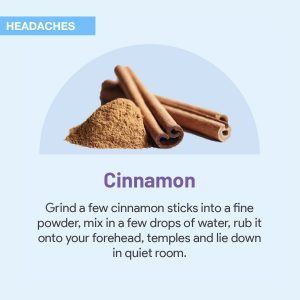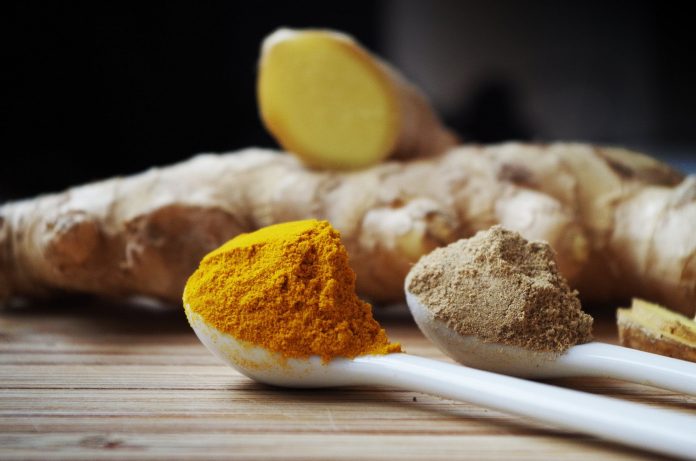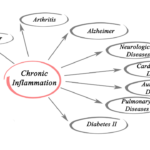Inflammation is a chief cause for pain in our bodies. While some inflammation is necessary to fight illnesses and injuries, chronic forms of inflammation can contribute to disease and make you ill. One of the best ways to combat inflammation and help keep your body healthy comes from choosing foods that reduce or prevent inflammation altogether.
Whole foods are like medicine for your body. Additionally, spices can amplify the benefits of whole foods, making them taste great as well as working wonders for your health and wellbeing. Using whole foods and spices can reduce or prevent swelling and inflammation in your body. Here’s how:
Your Body Was Meant to Ingest Whole Foods
From plants to animals, our bodies were designed to eat whole, unprocessed foods for optimal health. If you were to study the benefits of foods like fruits, veggies, nuts, seeds, legumes, and animal products, you’d see that they each contribute to health in some way. Eating whole foods, or eating clean, can help prevent illnesses and restore our bodies when they are off track.
Some of the top foods for reducing inflammation are:
- Nuts and seeds
- Leafy greens
- Tomatoes
- Fatty fish
- Olive oil
Incorporating these foods into your diet can help reduce inflammation and pain while helping your body function better.
Spices Contribute to a Healthy Eating Experience While Reducing Inflammation
Spices are wonderful! They can take great foods and make them even better. Adding spices to your daily diet can help reduce inflammation, and in some cases, prevent it. Most people add spices to their food to enhance their flavor, but you can choose spices for their health benefits as well.
The top 6 spices to battle inflammation are
- Turmeric
- Ginger
- Rosemary
- Cinnamon
- Cloves
- Cayenne Pepper
These spices not only give dishes a kick of flavor, they support better health and wellness. Consider some of these instead of using salt to flavor your food. For some people with high blood pressure or hypertension, salt in the diet will raise blood pressure. Find flavorful options like these instead.

If you suffer from pain due to chronic inflammation, you can help yourself by adding whole foods to your diet. Reduce processed foods and eliminate those foods you know are causing you the most problems. Generally, these are foods to avoid include…
- Fried foods
- Soda/Candy
- Processed foods
- Refined carbs
- And fatty meats
You can take control of your health each time you make a trip to the grocer. Make whole foods an important part of your diet and you are sure to see results for your chronic inflammation.
Spices That Reduce Inflammation and Taste Great!
Spices are generally used to enhance the flavor of food. They take a dish to the next level and help make it extraordinary. The more expansive your spice rack, the more you can explore with a wide variety of tastes. Sweet, savory, spicy… there’s something for everyone when it comes to spices. While spices might seem like they play a supporting role in cooking, they actually have medicinal value all on their own. They play a vital role in health and wellbeing, especially when it comes to inflammation.
The more you study, the more you uncover about the benefits of a wide variety of spices. Some little-known spice facts might surprise you:
- Cinnamon reduces blood sugar and is helpful anti-diabetic
- Peppermint and ginger can reduce nausea and help with headaches
- Basil fights infections and increases immunity
- Sage helps with memory and important brain function
- Turmeric helps reduce inflammation
These common spices and herbs may already be in your spice rack or growing in your garden, which means you can boost your health with your next meal.
Chronic inflammation can be managed with a healthy diet filled with whole foods. You can enhance the effects of these foods by adding some inflammation-fighting spices. Here are some fun ways to anti-inflammatory spices every day.
Turmeric- Use turmeric in stir-fries. Chop a variety of veggies and sauté with olive oil. Add turmeric for a bang of inflammation-fighting flavor. You can also add turmeric to a smoothie for a flavor boost. Turmeric comes powdered or you can by a piece of it from your local grocer for the best quality. Be sure to add black pepper when using turmeric to activate the healing benefits.
Ginger- Fresh ginger is a pungent and tasty root that can be found powdered or fresh in the produce section of your grocery store. Peeled and chopped, this powerfully tasty root can be used in sweet or savory dishes. It is commonly found in Asian-inspired dishes but can be added to stir-fries, soups, stews, and rice dishes.
Sage- Sage is known for its anti-inflammation properties, especially for dentistry. Cooking with sage is easy when making savory dishes. Add sage when roasting meat and poultry. Add sage to soups, sauces, and savory side dishes like rice, pasta, and stuffing.
Spices aren’t just an afterthought. Spices can be used intentionally to support your health. If you are looking to reduce inflammation or prevent it from taking hold in your body, use spices everyday to take advantage of their healing properties.
References
https://pubmed.ncbi.nlm.nih.gov/26007179/?from_term=turmeric+inflammation&from_pos=1
https://pubmed.ncbi.nlm.nih.gov/31049223/?from_term=rosemary+inflammation&from_pos=2
https://pubmed.ncbi.nlm.nih.gov/28407719/?from_term=cloves+inflammation&from_pos=1
https://pubmed.ncbi.nlm.nih.gov/27322240/?from_term=pepper+inflammation&from_pos=7








